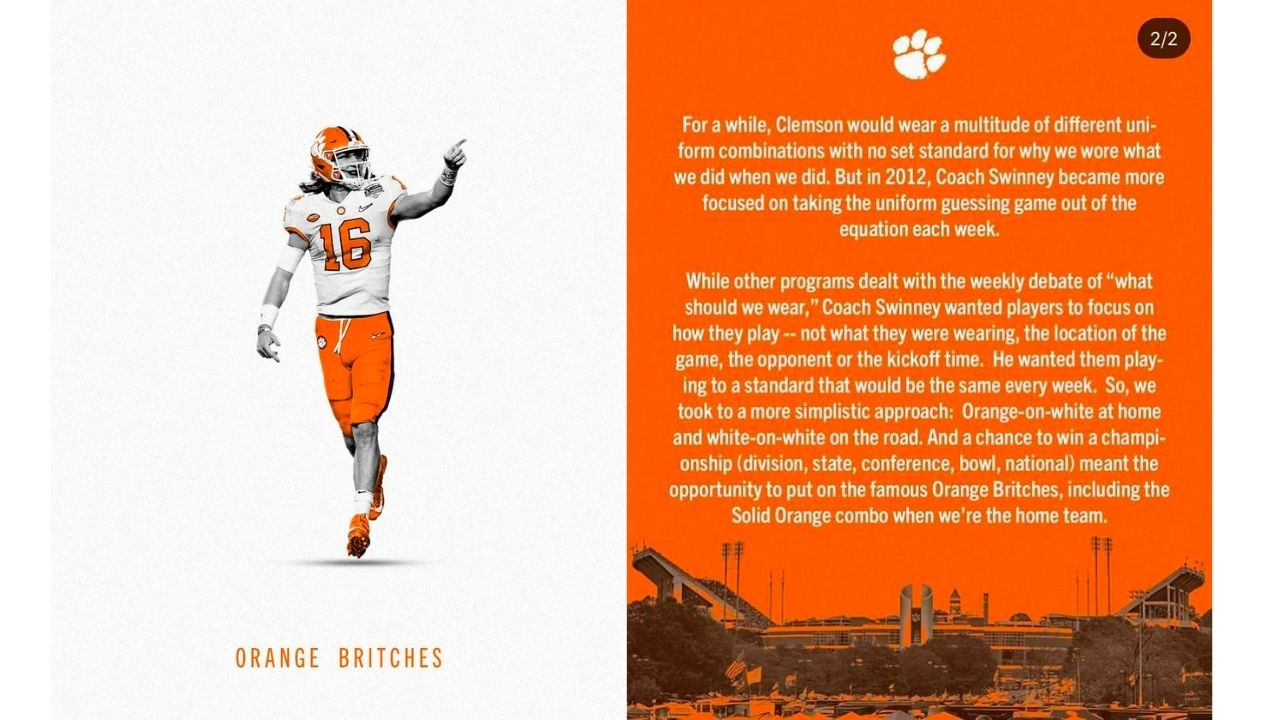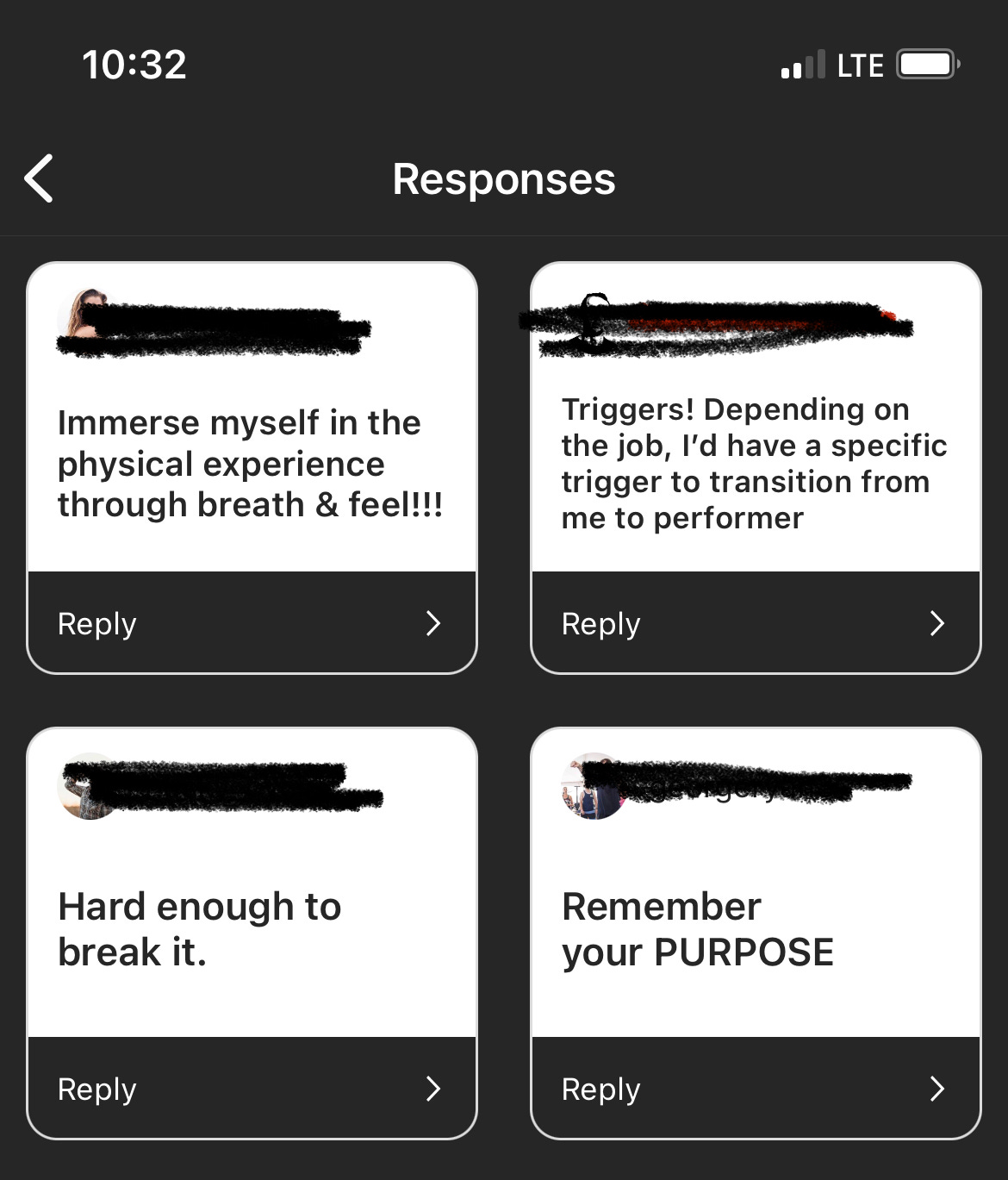This edition of The Pursuit is available to all (not just subscribers), so please pass this along to anyone who pops into your head as you read this —> You know at least 1 person who would enjoy and benefit from what we’re doing here ;)
If you’re new here, paid subscribers to The Pursuit get access to:
Subscriber-only posts (the good stuff!) and full archive
Post comments and join the community
Special discounts & giveaways
And more!
On with the show…
[COFFEE] = Still enjoying the Ethiopian Hamesho Natural from Color Coffee Roasters in Eagle, CO. (tasting notes = red hard candy & ripe blueberry) This roast has made its way into my all time Top 3 beans/roasts . 5/5
I’m also sampling a new microlot from my local coffee shop, Hopscotch Coffee & Records. It’s a honey process from Costa Rica and it boasts tasting notes of dark chocolate & sweet, juicy, ripe berries. It’s good, but not great. I prefer a little more brightness. 4/5.
[MUSIC] =
Top songs of 2021 from Spotify
Springsteen LIVE from 12/28/1980 at Nassau Coliseum in New York
If you use Spotify or if you’re on Instagram, you’ve no doubt seen your friends posting their Spotify Wrapped stories…
I’ll spare you my most listened songs & artists, and give you the link to my 2021 top songs playlist. If you wondering what kind of music you’re in for, Spotify describes my musical “aura” as: 2 parts hopeful & 1 part defiant. Sounds about right.
→ Listen to my 2021 Spotify Playlist HERE ←
And if you’re interested in that LIVE Springsteen concert, it’s part of 3-night stand between Christmas and NYE in 1980 that is “collectively regarded as one of the greatest stands in Springsteen concert history”… you can → grab it HERE (for $9.95) ←
[BOOKS] = Another 2-for…
Nick Saban’s How Good Do You Want To Be? (more below, keep reading!)
Ray Dalio’s new book, Principles For Dealing With The Changing World Order: Why Nations Succeed or Fail
Full disclosure, I’m not a HUGE fan of Dalio’s first book, Principles. I like his soundbites, but the book itself is was B-R-U-T-A-L listening. TO ME, it’s filled with too much (unnecessary) backstory about the details of how the studies were performed. If I want to read PubMed studies, I’d go there, not Audible. But that’s just me.
Anyway… this second book starts off much the same way… BUT, the topic of why nations/empires succeed & fall fascinates me. This book promises to be a study of the shifts in wealth, power, and world leaders throughout history so that we can identify where we are in the macro cycles of history and make educated predictions about what lies ahead.
As I’ve mentioned several times in recent editions of this newsletter, our world is changing at an incredibly rapid rate - and I’m all for learning everything I can about how to best adapt to these changes.
[PODCAST] =
I’ve been going hard on audio books lately, so I haven’t listened to any podcasts. 🤷♂️
A few editions back, I told you I’d get you an update on my elk hunts in Colorado and Montana… well, the podcast has been recorded but the episode hasn’t published yet - I’m a guest on legendary bowhunter Brian Barney’s podcast, Eastman’s Elevated. When it does, I’ll share it with you.
[OUTRAGEOUS PREDICTIONS FOR 2022]
These are NOT my predictions. Rather, this is an incredibly interesting resource that I came across last week. Danish bank Saxo publishes this list annually and I found this batch of predictions insightful and intriguing.
→ See All 10 Predictions HERE ←
How many do you think play out as predicted?
[SOMETHING NEW/COOL TO CHECK OUT]
I just learned about a new browser, Brave Browser that has already Google Chrome as my internet browser of choice.
It is: faster, safer, offers more privacy, AND it pays you to use it.
I’m making about $1 per day in their crypto token, BAT, which stands for Basic Attention Token. Rewards are distributed monthly, and deposited into your Gemini wallet - a crypto/DeFi “bank” - where it’s currently earning 1.75% APR, compounded daily.
No, it’s not retirement money, BUT, I’m getting paid for a faster, safer, more private (aka, BETTER) internet experience. And you can too!
Plus, all your Chrome/Safari bookmarks and extensions can be integrated in less than 60 seconds when you switch.
Might be worth checking out → Brave Browser
Flipping The Switch
A lot to talk about here, so get comfortable!
Some backstory = I’m working with a collegiate athlete who is learning how to “flip the switch”. He has the skill, technique, and sport IQ that he needs to be successful at the highest level…BUT, he’s lacking that killer instinct - the ability to “flip the switch” and go from nice guy to ultimate competitor.
So we’ve been talking A LOT about flipping the switch.
Teaching him has led me to a few realizations that many performance/mindset coaches overlook/assume/take for granted:
Not everyone knows what it means to flip the switch.
Even fewer know HOW to do it.
Even those who know how to “flip the switch” struggle to articulate &/or communicate exactly what they’re doing when they “flip the switch. (Go ahead, try to explain “flipping the switch” to someone who doesn’t get it.)
If we struggle to define and explain something, how can we teach it to someone who who doesn’t know what it is - or how to do it?
So, I asked some of my friends for their input. I wanted different ways to communicate these concepts to my young athlete, because part of coaching/leading is understanding that not everyone learns in the same way.
I need(ed) a different way to help him grasp this all important concept.
So I asked:
A Navy SEAL (an active duty, SEAL Team 6 Operator!)
An Olympic medalist
A world famous performance coach
A Special Forces Intelligence Leader
A SWAT Captain (who also teaches firearms training for his PD & SWAT guys)
A professional bowhunter
A College Hall Of Fame Athlete
A National Champion bodybuilder
Here’s what they said:
Let’s start with the coach - because he spoke in terms of theory: an answer that can be molded to any individual:
Triggers! Depending on the job, I’d have a specific trigger to transition from me to performer.
THIS. IS. GOLD.
It requires the awareness of the fact that the individual and the performance are separate. In other words, our IDENTITY is not wrapped up in our performance or how we perform. (i.e. if you have a
This separation of self from performer is a prequisite for “flipping the switch”. The act of flipping the switch IS the transition from one version of us to the other. No separation = no transition. (If you don’t grasp this, hit me up. Because if you don’t grasp this, you’ll never be able to flip the switch.)
1 & 2 highlight the fundamental truth that “flipping the switch” is a process of transforming from one thing to another. Think alter ego, Superman and Clark Kent, Dr. Jekyll & Mr. Hyde… This is one reason we use the term “flipping the switch” - we’re literally opening one circuit and closing another one, to step into a different role. In our quest to DEFINE WHAT FLIPPING THE SWITCH IS, this is the answer.
Note the term, triggers. Pay close attention to the fact that he suggests different triggers for specific jobs. Are we hitting the gym for a tough training session, sitting down to create written magic on the computer, or about to step on stage to deliver a keynote to 5,000 people? Each act is a different performance and requires a slightly different version from the same individual. Therefore, triggers unique to the situation are vital.
Here is one of my favorite uses of this psychological trigger in sports: Clemson’s Orange Britches. I don’t even play and I get fired up when I see the IG post of orange Britches on gameday! 🔥 🚀
Now that we’ve covered the mechanics of flipping the switch and you understand the importance of triggers, let’s look at some of the other answers I received. You’ll see pretty quickly that ALL of these are triggers.
The Navy SEAL:
One of the aspects of this detailed response that really stands out to me is #2 - the mental reps/visualization.
Notice what he is NOT doing on the helicopter ride to the operation site…
He is NOT panicking.
He is NOT running through everything that could go wrong.
He is NOT worrying about what people will tweet if he doesn’t ____ (blah, blah, blah, voices in head).
He IS focused on the task at hand.
He IS focused on the actions required of him on order to be successful.
He IS present, calm, and prepared for any/all situations.
When YOU think about your pregame routine(s), can you say the same thing?
A few other responses from the high performers noted above:
That top left response is from the Olympic medalist. She is also a mentor for young athletes and we had an awesome conversation about different learning styles.
As you compare her answer to the others you might notice a stark contrast: she’s more kinesthetic in her approach, meaning she needs her body to tell her mind it’s Go Time.
Most of the other triggers we’ve seen (or think of) are what we call top-down, meaning we tell our mind it’s go time and the body follows.
Even the Navy SEAL mentioned this: “the feel of the body armor on my chest”
AND he also uses music + visualization.
So before you ask “which is better?”, the answer is, neither.
Or, it depends (on your personality & learning style).
Or both! (Be less binary 🤔)
Ok, time to wrap this up and get on to our next segment…
RECAP / TLDR:
Separate the self from the performance
Utilize triggers - psychological tools to help transform from individual to performer
Different triggers for different performances
Triggers can be top-down (mind first), or bottom-up (body first). Try both. Some people (like our SEAL) utilize both every time.
Focus on actions, not outcomes
Visualize successful completion of the actions/steps involved in the entire process
HOW GOOD DO YOU WANT TO BE?
When Nick Saban talks, I listen. I mentioned his book at the top of this newsletter, and it’s a must-read if you’re into leadership, coaching, goal-setting, or winning.
IMO, he’s the best coach of our generation. If you’d like to refute that, I’m all ears…
Anyway, here’s the coaching GOAT 🐐 talking about avoiding let downs and fighting complacency after a HUGE win over UGA in the SEC title game…
They [talking about his players] WERE a good team last night, but the key is to be able to do that consistently, every single play, every single week. The question they have to answer is: are we going to relax because we accomplished our game plan one time, or are we going to realize that we have the ability to perform that way every single week, IF we keep doing the work that got us that first result, and continue to build on it.”
^^^ This is why Nick Saban and Alabama have won 8 SEC titles in his 15 years at Alabama: We’re only as good as our next performance.
Asked about injuries to star players and how his younger guys could step up, Saban continued…
All of our guys have to understand the ‘Bama Standard’ - they way we expect to play every time, regardless of who we play or what the external circumstances are - and realize that when they get an opportunity to help the team, that’s their chance to earn a larger role on the team (because if they can’t do that, we’ll find someone else who will)
Here are a few ways we, as individuals, can create value for the team/organization:
Help your teammates shine (block)
Take advantage of opportunities when presented (don’t miss tackles)
Do your job (catch the ball if thrown to you)
Be mentally prepared (See: Seattle Seahawks quarterback Russell Wilson goes through entire the team's gameplan during his pregame warm up despite being inactive for Week 6's showdown against the Pittsburgh Steelers.)
<blockquote class="twitter-tweet" data-theme="dark"><p lang="en" dir="ltr">Russell Wilson, on IR for the first time in his career, is on the field running a mock 2-minute drive by himself during pregame warmups. Calling/changing plays at the line of scrimmage and all. <a href="

17, 2021</a></blockquote> <script async src="https://platform.twitter.com/widgets.js" charset="utf-8"></script>
Everybody wants to BE at the top… but very few are willing to put in the work, or make the sacrifices necessary to achieve those results.
Are you earning it?
A few reflection questions for you:
What standards have I set for myself?
What am I tolerating that I should not?
How am I adding value to my team(s)? (Relationships, job, friendships, hunting partners, etc, etc?)
What sacrifices am I willing to make to succeed at the levels I want?
Am I content with one great performance, or am I striving to make that level of greatness a consistent thing?
“AMATEURS do it until they get it right.
PROS do it until they can’t get it wrong.”
Happy Holidays, thanks for being here, and keep moving the chains!
Munsey







I love the part about flipping the switch (interestingly, this idea has been on my mind recently too).
There's a Joe Rogan clip on YouTube where they talked about David Goggins and how he's able to go from David to Goggins when things become challenging - basically they're talking about how he's able to flip the switch and become better. It's super inspiring.
Below is the link to the clip for anyone who's interested.
https://youtu.be/gT_1X2hvA8A